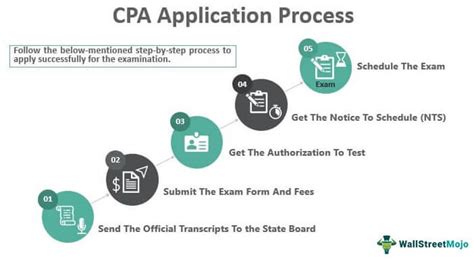Introduction
The Illinois CPA exam is a comprehensive evaluation that assesses candidates’ knowledge and skills in accounting principles, auditing, financial reporting, business environment and concepts, and taxation. Passing the exam is a requirement for obtaining a CPA license in Illinois. This guide provides a step-by-step approach to help candidates prepare for and succeed in the exam.

Eligibility and Application
Eligibility Requirements:
– Bachelor’s degree or higher in accounting or a related field
– 150 semester hours of college coursework
– 24 semester hours of accounting coursework
– No convictions of felony or misdemeanor involving dishonesty or fraud
Application Process:
– Register with the Illinois Department of Financial and Professional Regulation (IDFPR)
– Submit an application fee of $100
– Provide official transcripts from all colleges and universities attended
Exam Format and Structure
The Illinois CPA exam consists of four sections:
– Auditing and Attestation (AUD)
– Business Environment and Concepts (BEC)
– Financial Accounting and Reporting (FAR)
– Regulation (REG)
Each section is a four-hour exam with 75 multiple-choice questions (MCQs) and one three-hour exam with 30 to 35 task-based simulations (TBSs). The TBSs assess candidates’ ability to apply accounting principles and concepts to real-world scenarios.
Exam Content
Auditing and Attestation (AUD)
- AUD 100 – Audit Standards, Responsibilities, and Ethics
- AUD 200 – Planning and Performance of an Audit
- AUD 300 – Completing the Audit and Reporting
- AUD 400 – Special Considerations
Business Environment and Concepts (BEC)
- BEC 100 – Economics
- BEC 200 – Management
- BEC 300 – Corporate Governance
- BEC 400 – Information Technology
Financial Accounting and Reporting (FAR)
- FAR 100 – Conceptual Framework and Standard Setting
- FAR 200 – Financial Statement Preparation
- FAR 300 – Specialized Industries
- FAR 400 – Governmental and Not-for-Profit Entities
Regulation (REG)
- REG 100 – Individual Taxation
- REG 200 – Business Taxation
- REG 300 – Federal Taxation of Property Transactions
- REG 400 – Ethics, Professional Responsibilities, and Federal Tax Procedure
Exam Preparation
Study Materials:
- AICPA CPA Exam Blueprints
- Official CPA Exam Study Materials
- Commercial Study Courses
- Online Resources
Study Schedule:
- Plan a study schedule that allows for ample time to cover all exam content
- Aim for consistent study sessions of at least 2-3 hours per session
- Take breaks and revisit topics regularly to retain information
Practice Tests:
- Take practice tests to assess knowledge retention and identify areas for improvement
- Analyze your results and adjust your study plan accordingly
Simulation Practice:
- Practice TBSs with a focus on applying accounting principles to real-world scenarios
- Use the AICPA’s Candidate Practice Simulation (CPS) tool
Exam Day Tips
Before the Exam:
- Arrive at the testing site well-rested and punctually
- Bring required identification and a calculator
- Review your study notes and practice tests
During the Exam:
- Manage your time effectively, allocating approximately 50 minutes per MCQ section and 100 minutes for the TBS section
- Read instructions carefully and allocate time accordingly
- Answer questions to the best of your ability and move on if you get stuck
- Utilize the AICPA’s Testlet Manager to navigate and review questions
Exam Results
Exam results are typically released 6-8 weeks after the test date. Candidates can check their results online through the AICPA’s website.
Additional Resources
AICPA: https://www.aicpa.org/cpa-exam
IDFPR: https://www.idfpr.com/cpa/cpa.asp
CPA Exam Fee: $750 per section
Exam Locations: Prometric testing centers throughout Illinois
Exam Time Limit: 4 hours for MCQ sections, 3 hours for TBS section
Total Hours to Pass: 400 hours of preparation (estimated)
Conclusion
Passing the Illinois CPA exam is a challenging but achievable goal. By following a structured preparation plan, leveraging available resources, and dedicating ample time and effort, candidates can increase their chances of success. The CPA license provides a valuable credential that opens doors to career opportunities and advancement in the accounting profession.
